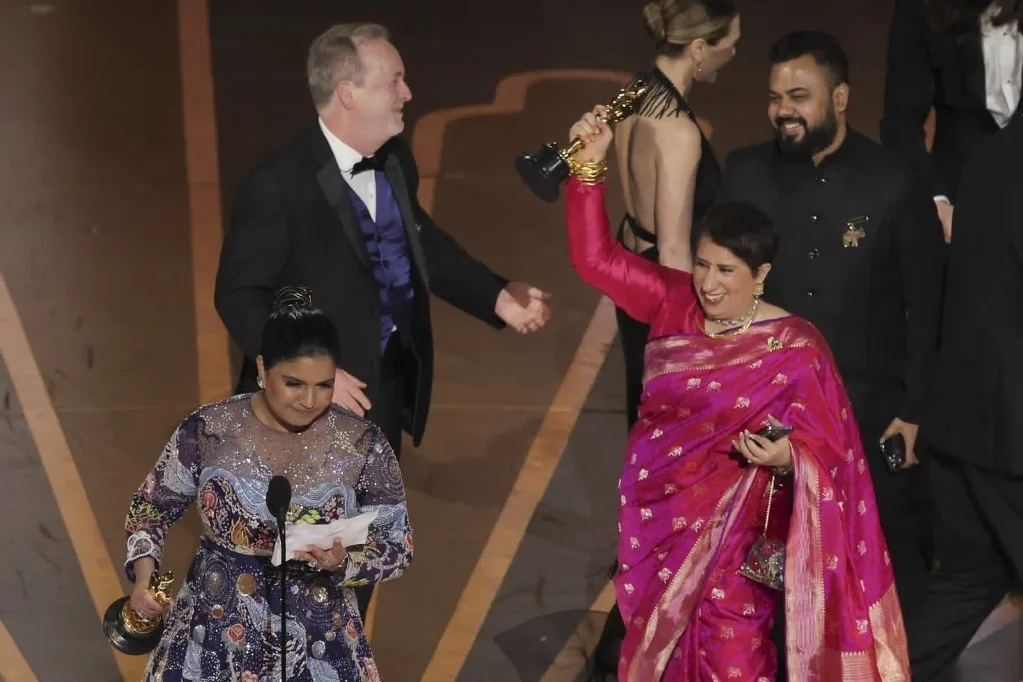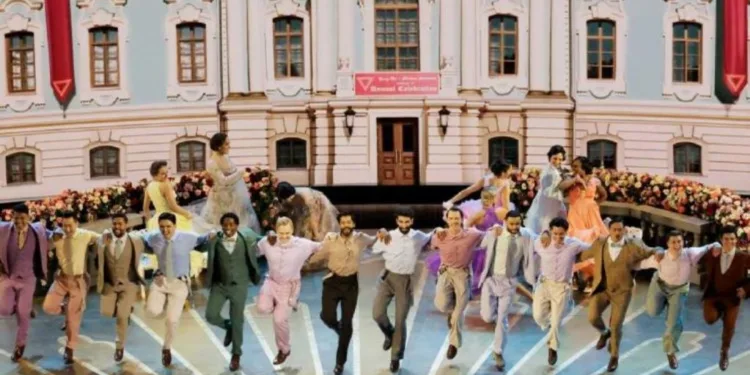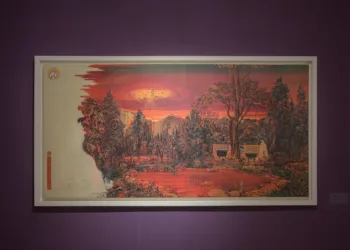South Indian cinema, with a string of hits, had overtaken the more famous Bollywood quite a while ago but the Oscars for ‘Naatu Naatu’ and The Elephant Whisperers now means that the time of the global South has come
BY DR PALLAVI JHA
The Hindi film industry, based in Mumbai, is the largest branch of cinema in India. This industry is often called Bollywood, close to the name ‘Hollywood’. The word Bollywood is sometimes applied to Indian cinema as a whole, especially outside South Asia, but this usage is incorrect. In July 2003, Oxford dictionary accepted the word ‘Bollywood’ as defining Indian cinema. But this puts the whole of Indian cinema within one bracket which is not correct.
Indian film has often been regarded as one entity. But different parts of the country possess distinct narrative styles, creative output, and productions. Bollywood, the term for Hindi-language films, primarily features North Indian viewpoints and narratives. This is the commonly quoted strand of Indian cinema and the historical context for how Indian cinema has been seen in the West. Nonetheless, the term’s widespread use has drawn criticism for ignoring regional cinema and lumping all Indian movies under one category. Given that Kimmel has made this error, it is clear how discussions about Indian cinema need to be frequent and in-depth.
Having said that, with the current scenario of the South films ruling the box-office and the hearts of millions of Indians, it is hopefully going to be better understood and defined. As an observer of how films and society are interrelated, one could see that now “Mai Jhukega Nahi” with the iconic gesture has become almost every young moviegoer’s favourite.

From Baahubali to K.G.F., from Pushpa to RRR, the South films are minting money like never seen before. And now to add to the glory, the RRR song, “Naatu Naatu”, received the Oscar for Best Original Song. The excitement surrounding it paid off because India will now take home another Oscar. With this success at the Oscars, M.M. Keeravaani has refocused global attention on India. The words were written by Chandrabose, and Keeravaani created the music. This brings in further hope because the movie itself is from South Indian cinema, not India’s renowned Bollywood film industry.
“Do you know Naatu? If you don’t, you’re about to!” Bollywood superstar Deepika Padukone gave a spirited introduction to the Oscar-nominated song, “Naatu Naatu”, from the worldwide hit film RRR at the Oscars on March 12.
It was intended to be a celebration of Telugu-language movie RRR’s improbable journey to the Oscars when the viral heel-tapping smash, “Naatu Naatu”, won the award for Best Original Song. However, the lack of any South Asian dancers onstage infuriated and saddened many in the South Asian community. None of the 20 dancers onstage seemed to be of South Asian heritage. This was a significant moment in representation for the South Asian population, particularly the South Indian and Telugu cultures. This has disappointed many in the South Asian subcontinent.
But, there is a silver lining. With 20 non-Indians being part of the celebration of a tremendous victory of India, the globalisation and marketisation games of Indian films are spot on. “Naatu Naatu” implies “raw” or “rustic” in the native tongue of Telugu, spoken by millions in south-eastern India; raw and rustic and how. The performers danced to the song almost exactly as the original Indian version. Although the lack of South Asians and presence of only whites have upset many, but this also means that an Indian song is hugely accepted by all around the world. The song is about a dance battle between heroic revolutionaries and the colonisers. And with nothing to guess, the revolutionaries win the battle. Drawing an analogy, the Oscar performance looks like a rendition of the future where the whites are compelled to learn from the Indians.

For the evening, “Naatu Naatu” won India’s second Oscar. The Elephant Whisperers, which was produced and directed by Guneet Monga, and directed by Kartiki Gonsalves, won the Best Documentary Short award. The movie faced off against How Do You Measure a Year?, Haulout, and Stranger At The Gate. According to Gonsalves, the honour is a tribute to India. Following The House Built by Ananda and Her Face Meets, which competed for Best Documentary in 1969 and 1979, respectively, The Elephant Whisperers became the first Indian film to win an Oscar in this
category. It narrates the tale of Raghu, an orphaned elephant calf, who is looked after by Bomman and Bellie, a native couple, in Mudumalai National Park. This documentary highlights both the surrounding natural beauty and the ties that develop between them.
So, be it RRR or The Elephant Whisperers, South cinema from India is making its mark globally. This signifies how the Indian film industry is dominating the diaspora.

(A Lady Sri Ram College graduate and a PHD from TISS, Mumbai, the writer teaches at DY Patil International University, Pune. She is also an avid
researcher who has worked for almost a decade on gender and Hindi cinema.)








